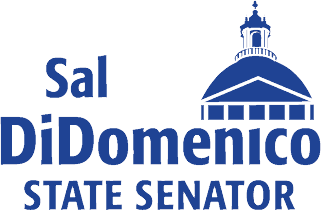03/02/2022
Senator Sal DiDomenico, State Representative Marjorie Decker, and the Lift our Kids Coalition recently hosted a virtual Sweats and Sweaters Event in support of raising cash assistance grants in the FY23 budget for families living in deep poverty. DiDomenico has been a longtime champion of lifting Massachusetts families out of poverty and has been the lead Senate sponsor of legislation that would end deep poverty in the Commonwealth. In addition to filing this legislation, he has repeatedly partnered with Rep. Decker and the Lift Our Kids Coalition to secure grant increases in the state budget for the Commonwealth’s neediest families.
“Throughout my years the Senate, I have always prioritized legislation to lift families out of poverty, and that commitment has only increased during the COVID-19 pandemic,” said DiDomenico. “While everyone has felt the economic weight of the pandemic, it has certainly hit our Commonwealth’s low-income families the hardest. I am proud of the progress we have made on this issue thus far, but we cannot stop until there is not a single child or senior citizen living in deep poverty. We have another opportunity with our upcoming state budget to make a major difference in the lives and well-being of our most vulnerable residents, and I am fully committed to making sure we get this done.”
The U.S. Census Bureau defines “deep poverty” as living in a household with a total cash income below 50 percent of its poverty threshold. That currently equates to about $915 a month for a family of three. In contrast, Massachusetts’s cash benefits to families, known as Transitional Aid to Families with Dependent Children (TAFDC), is capped at $715 a month for a family of three, therefore leaving thousands of children well below the level of deep poverty.
DiDomenico and coalition members are calling upon the state Legislature to increase the TAFDC and Emergency Aid to the Elderly, Disabled, and Children (EAEDC) line items by 20 percent in the fiscal 2023 budget. Advocates are also supporting legislation filed by DiDomenico and Decker that would require the state to increases cash assistance grants by 20 percent until reaching half of the federal poverty level while also providing for annual increases to account for inflation. The Joint Committee on Children, Families, and Persons with Disabilities favorably reported the Senate version of the bill on February 7th, furthering momentum for this policy
